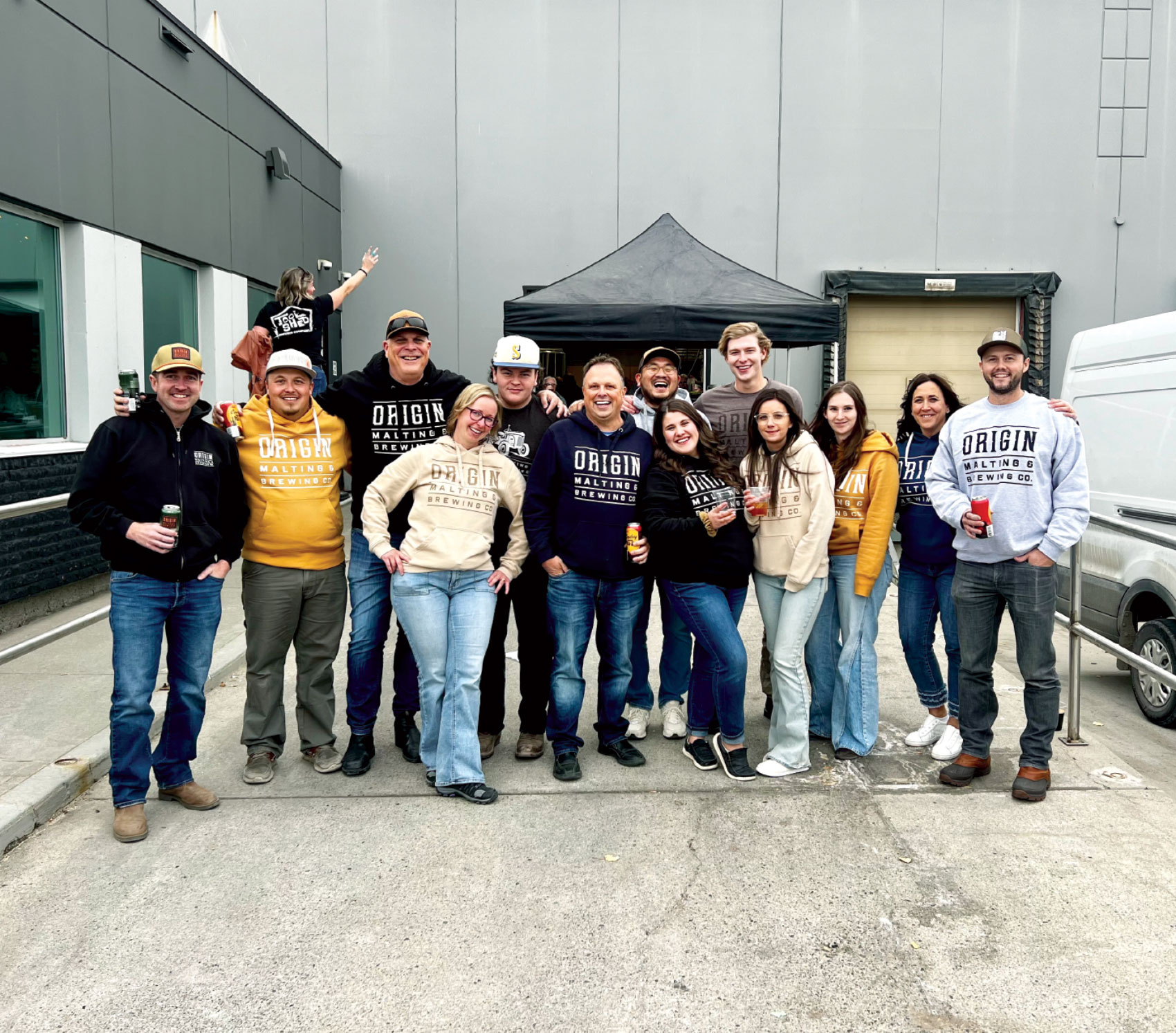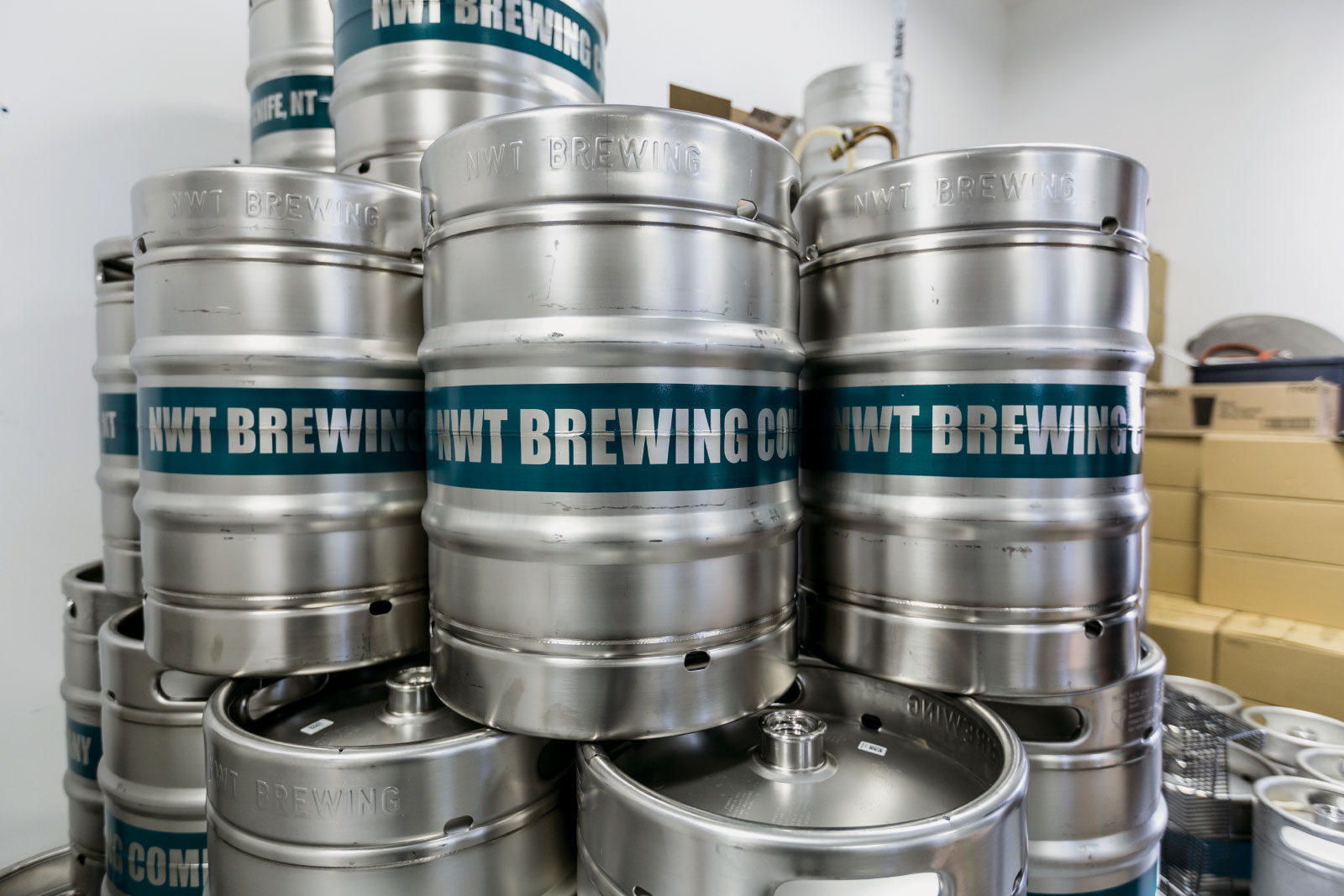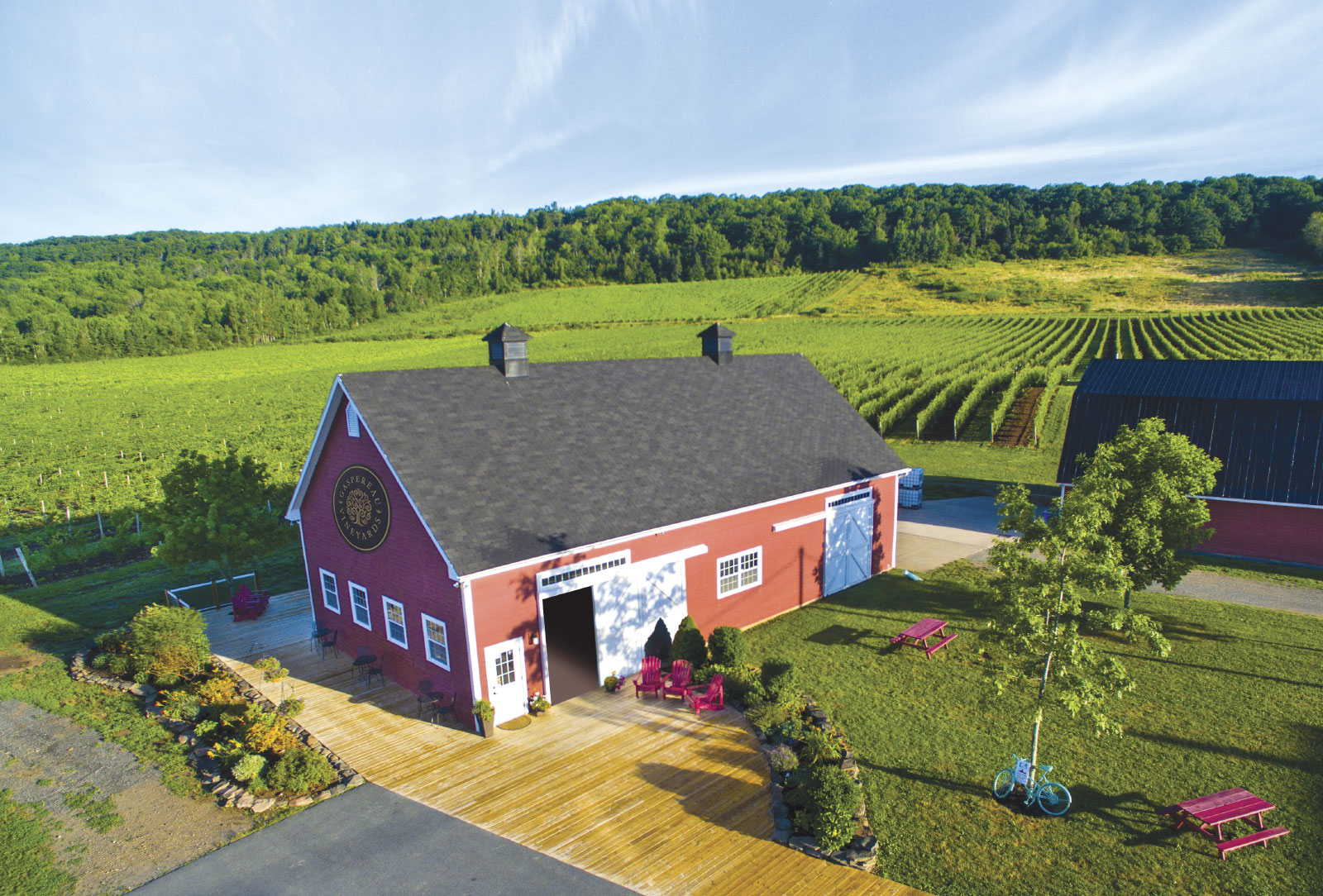There is a horseshoe-shaped band of nutrient-rich black loam running through the Prairies. The heart of it is in Alberta, and it is why the province grows some of the best malting barley in the world, sought by brewers not only in Canada, but in America, China and beyond.
The Hilton family has been farming in southern Alberta since 1910. Today, the fifth generation of Hiltons rotates barley through their 17,000 acres of land, while using another 2,000 acres for pasture.
Since 2017, the Hiltons have also owned and operated Origin Malting & Brewing Co. Origin is one of the largest breweries in North America that grows its own barley, malts that barley itself and brews with it. There are only three such breweries and the other two do it on a very small scale as a fraction of their regular production, while every one of Origin’s beers contains malt from the Hilton farm. Origin is a rare, true grain-to-glass story, controlling every single step of the beer-making process, from the seed in the soil to the taste at the tap. “We grow beer,” is Origin’s apt motto.
Beer is an agricultural product
For decades, prior to founding Origin, the Hilton family was largely unaware of how precious their barley was. By law, since 1935, the Hiltons sold the fruits of their land to the Canadian Wheat Board and never got to see people enjoy their products; the Canadian Wheat Board served as a black box disconnecting farmers from consumers. When it was announced in 2011 that the board would be dissolved, the Hiltons began searching for buyers and were introduced to American craft breweries, who, unbeknownst to the Hiltons, had been using – and loving – malt made from their barley for years.
“When you finally get to meet the buyers and get feedback about how much they love your product … they were very generous with their praise,” said Sterling Hilton, farmer and president of Origin Malting & Brewing.
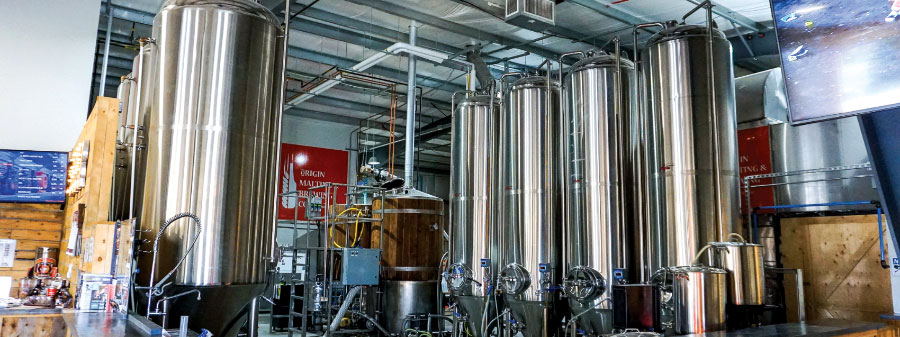
Working with four other Alberta barley farmers and an Alberta malthouse, the Hiltons entered into a first-of-its-kind, three-year barley and malt supply contract with a major craft brewer based in California. The contract was signed on Aug. 1, 2012, the very first day after the Canadian Wheat Board ceased to exist. It was the family’s first foray into craft beer and the first time they were able to connect their land to an appreciative customer.
They renewed that first contract for several years. Over the duration of the contract, the brewery and the Hiltons would visit each other biannually. Sterling witnessed the explosive growth of craft beer during visits to California, seeing new breweries pop up like stalks of barley every spring, and seeing their contract-partner breweries’ ever-increasing demand for malt. The original five barley farmers would eventually meet demand for their grain.
Vertical integration
Newly exposed to entrepreneurship, the Hiltons decided to lean heavily into their agricultural expertise. An opportunity presented itself to purchase craft malting equipment from a then-new, but now-defunct manufacturer in Fargo, N.D. Unsure about the tenability of craft malting as a business, the Hiltons reached out to their American brewery friends, who offered unfettered encouragement. “You grow the best barley on the planet,” they were told. “Why wouldn’t you do this?”
To complete the picture, Origin, as the malting enterprise would come be known, added a seven-hectolitre brewery made by WeCan Brewing Systems acquired used from, coincidentally, a California craft brewery. The plan was not to build Origin as a beer brand, but to have breweries that purchased Origin malt make guest beers to test recipes and malt. However, the Town of Strathmore, home to less than 15,000 people, had other ideas.
We grow some of the most sustainable food in the world.
Sterling Hilton, Origin Malting & Brewing Co.
Residents of Strathmore and Alberta supported Origin’s local, agricultural business in droves. Less than a year after installing the original brewhouse, Origin upgraded to a 15-hectolitre brewery, also made by WeCan and also acquired used from the same California craft brewery, a brewhouse that Origin still uses. Today, over 90 per cent of the grains used in Origin’s beers are grown on the Hilton farm. In keeping with Origin’s mission to bring its agricultural products to consumers, even the beef served in Origin’s Strathmore taproom comes from cattle pastured on Hilton land.
Origin supplies malt to craft breweries in Alberta, British Columbia and California. That malt is made from barley hand selected to perfectly suit the needs of the Origin malthouse. From the 17,000 acres of land the Hilton family farms, barley from only 1,000 acres is needed for Origin’s malting and brewing needs. Of all the malt Origin makes, it has the advantage of brewing its beer from the freshest malt. “Origin has to be the best of the best,” said Sterling.
Partnerships and growth
Origin’s focus on being the best of the best, coupled with its ability to connect Alberta’s beer consumers with the land that surrounds them, has resulted in success far beyond the family’s initial business plan. In 2024, Origin acquired a 20-barrel DME brewhouse located in Calgary and now operates two breweries and taprooms. Acquisition of the Calgary brewery was a huge step for the endeavour that had originally started as a side project to showcase Origin’s malt.
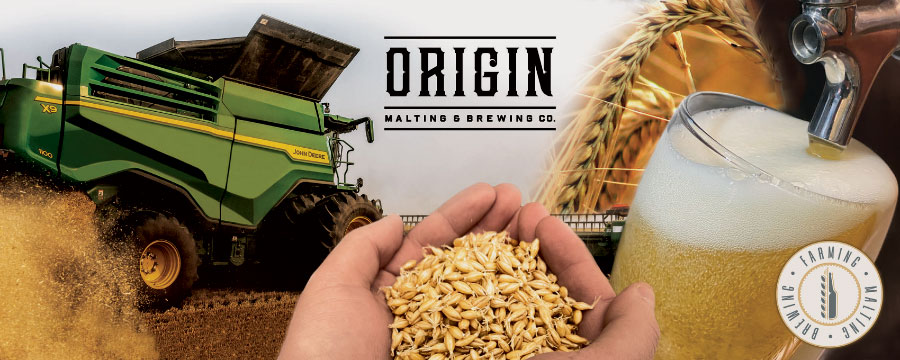
Origin’s growth is more than a testament to the quality of Origin’s beer. Since the new brewery exceeds Origin’s own needs, the brewery now contract brews beer for other breweries, which not only utilizes available capacity, but is another opportunity to showcase Origin’s malt with their contract brewing partners.
Origin has also earned attention from outside the beer world, which has allowed them to enter into promotional partnerships. The first was sponsoring and making branded beers for the Barn Burner podcast, popular with fans of the Calgary Flames. Barn Burner Blonde was the first beer made to tie into the podcast, but the promotional sponsorship was so successful, Origin later added After Burner Pale Ale, to be consumed during the After Burner Show, which follows every Flames game.
Origin is a rare, true grain-to-glass story, controlling every single step of the beer-making process, from the seed in the soil to the taste at the tap.
Origin also entered in a partnership with the Sutter brothers, the legendary six brothers from Viking, Alta. who would all reach the NHL in the late 1970s and early 1980s. Proceeds from sales of Origin’s Six Sutter Shooters American Lager supports the Sutter Fund, which has supported communities in central Alberta with over $3 million in funding since its founding in 1996.
Stewards of the environment
Being so connected to the soil, it comes as no surprise that Origin employs the best practices toward sustainability. Like most craft brewers, Origin supplies its spent grain to farmers for feed and are careful in their water and heat use. “We take sustainability very seriously,” said Sterling. “We are the fifth generation, and we are obviously motivated to ensure the success of future farmers.”
This is just in keeping with a legacy started by the prior generation of Hiltons. Gordon Hilton, Sterling’s father, pioneered methods to reduce soil erosion through continuous cropping and no-till farming. Continuous cropping is the practice of always having a crop on the field, rather than having periods of fallow. By rotating those crops, different nutrients are removed from and returned to the soil, so that the soil maintains a balance of nutrients. This reduces the need for fertilizers and other chemicals. No-till farming uses specialized equipment to drill seed into the soil, rather than tilling that soil, which disturbs the soil’s microbiome and exposes it to wind erosion.
Pioneering the use of these two techniques earned Gordon induction into the Soil Conservation Council of Canada’s Hall of Fame and the Alberta Agriculture Hall of Fame. “We grow some of the most sustainable food in the world,” said Sterling. The Origin Malting & Brewing story covers decades of agricultural history, innovations in sustainable farming, barley for everybody from big multinational breweries to small craft breweries, entrepreneurship, grain-to-glass practices and surviving droughts and global crisis. “It’s a long story in six letters,” said Sterling.

